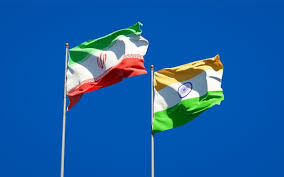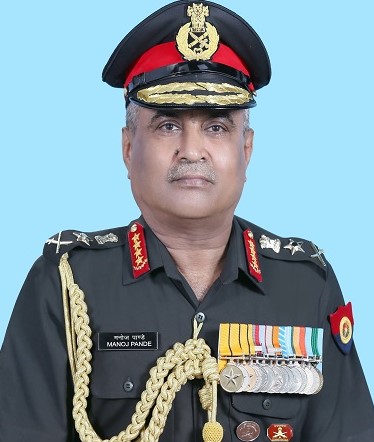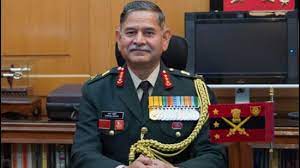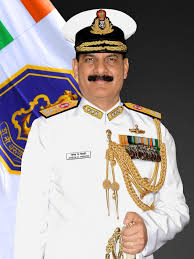Eight years after concluding the general framework of cooperation on the Chabahar port in Iran, India and Iran signed a 10-year contract for its operation.
The long-term agreement was signed between Indian Ports Global Ltd. (IPGL) and Port and Maritime Organisation (PMO) of Iran, enabling operation of the Shahid-Behesti terminal.
Subsequently, IPGL will invest approximately $120 million in equipping the port. India has also offered a credit window equivalent to $250 million for mutually identified projects aimed at improving Chabahar-related infrastructure, officials said.
The agreement was signed in the presence of Ports, Shipping, and Waterways Minister Sarbananda Sonowal and Mehrdad Bazrpash, Minister of Roads and Urban Development of Iran.
A memorandum of understanding for the development of the Chabahar port by India was signed in May 2015.
The contract was executed on May 23, 2016 during the visit of Prime Minister Narendra Modi to Iran.
Vital trade artery
Terming it a historic day for the maritime sector, Mr. Sonowal said the agreement heralded a new age of trade, marine cooperation, and transshipment while boosting trilateral trade between India, Iran, and Afghanistan.
“As India continues to invest in Chabahar port, its efficiency and capacity will be further enhanced, solidifying India’s commitment to the region’s economic development.
India will use the port for humanitarian aid shipments, reaffirming its commitment to support regional development beyond commercial interests, showcasing its commitment to fostering goodwill and stability in the region,” Mr. Sonowal said.
He underscored Chabahar’s significance, stating that it served as a vital trade artery connecting India with Afghanistan and Central Asian Countries.
In the absence of the long-term agreement that got delayed due to some tricky issues, including arbitration, the two countries had concluded short-term leases.
Arbitration was one of the most important disputes between the negotiators of the two countries, according to Iranian Ambassador to India Iraj Elahi.
“In this context, the two sides reached a formula that would provide for both their interests.
In short, I can say that according to the contract, any dispute should be resolved in the atmosphere of mutual trust and the will of the heads of the two countries,” he told The Hindu.
Clearing the way
In August 2023, Mr. Modi met Iranian President Ebrahim Raisi in Johannesburg on the sidelines of the BRICS Summit during which they discussed the pending long-term contract on Chabahar.
Acknowledging that the port was being run on an ad hoc basis, not because of any problem on the Indian side but over who the combination of partners would be in Iran, External Affairs Minister S. Jaishankar said that when the long-term agreement would be concluded, it would clear the pathway for bigger investments to be made in the port.
“It will see more connectivity linkages coming out of that port. We believe connectivity is a big issue in that part. International North-South Transport Corridor we are doing with Iran, Russia and Chabahar will connect us to that, also to central Asia,” he said in Mumbai on Mondau.
Chabahar is a deep water port located in the Sistan-Baluchistan province of Iran. During the visit of Mr. Modi to Iran in May 2016, a trilateral agreement to establish the International Transport and Transit Corridor (Chabahar Agreement) was signed by India, Iran, and Afghanistan.
India is participating in the development of the first phase of the Shahid Behesti terminal of the Chabahar port.
India has so far supplied six mobile harbour cranes — two with a lifting capacity of 140 tonnes each and four with a capacity of 100 tonnes each — and other equipment worth $25 million.
Terming transit and ports as the main pillars of Iran-India relations, Mr. Elahi said, “We believe that the signing of this contract will create a new and serious energy in all sectors of relations and will restart stalled projects.
So with this contract and its implementation, cooperation will be developed in all sectors. Chabahar can act as the driver of relations.”
The Iranian envoy also rejected any conflict between India-Iran cooperation on Chabahar and any economic plans and obligations of Iran towards other countries.
The agreement between Iran and India for the development of the Chabahar port was signed years before China’s One Belt One Road project and is based on the common interest of the two countries, he added.
IPGL, through its wholly owned subsidiary India Ports Global Chabahar Free Zone (IPGCFZ), took over the operations of the Chabahar port with effect from December 24, 2018.
Since then, it has handled more than 90,000 twenty-foot equivalent units (TEUs) of container traffic and more than 8.4 MMT of bulk and general cargo.
The port is integrated with a special free zone, which Mr. Sonowal said augmented its appeal, while India’s incentives, such as concessions on vessel-related charges and cargo charges, bolstered trade flows through Chabahar, fostering economic growth and cooperation.
A total of 2.5 million tonnes of wheat and 2,000 tonnes of pulses have been trans-shipped from India to Afghanistan through the Chabahar port so far.
In 2021, India supplied 40,000 litres of environment friendly pesticide (Malathion) to Iran through the port to fight locust menace.





